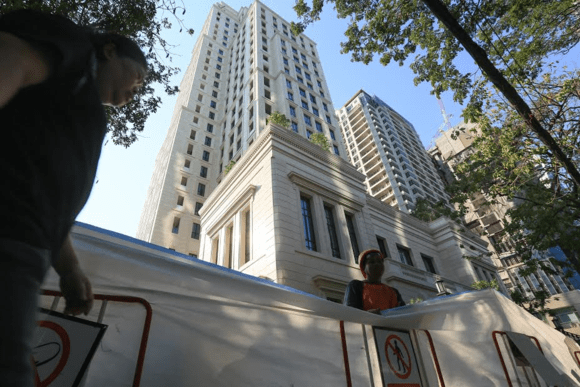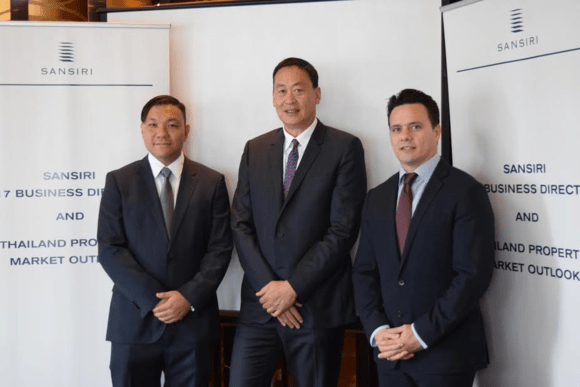Company targets Chinese buyers, despite stricter capital controls in China

“98 Wireless” in downtown Bangkok is one of the latest condominiums that Sansiri is intending to market abroad.
HONG KONG — Sansiri, one of the top real estate developers in Thailand, has laid out an aggressive sales plan this year, particularly targeting Chinese buyers, despite stricter capital controls on the mainland, as it says that the political situation in the kingdom is now stable.
Sansiri President Srettha Thavisin said on Tuesday that his company has set its presale target of 2017 at $1.02 billion which is 15% more than a year before and higher than a 9% increase recorded in 2016.
“We have seen the [Thai] economy getting better, and I think the political situation is also becoming stable so we expect to achieve these sales,” Srettha said.
The company is counting on foreigners to contribute $215 million in presales, a 40% jump from last year. The company develops detached houses and townhouses as well, but overseas buyers usually purchase condominiums mainly in Bangkok. If both presale targets are met, the percentage of sales made to overseas entities will exceed 20% of the total for the first time.
Local buyers remain its main customers, but Srettha told reporters in Hong Kong that “as you can see [from our plan], we are relying heavily on foreign sales.” This is especially the case considering foreign contribution was a mere $43 million in 2014, when the company started seeking clients beyond its borders.
Over 80% of its overseas clientele come from Asia, such as Taiwan, Singapore, Malaysia and Japan. But the main driver has been Hong Kong, where sales grew 33% in 2016 to top 600 million Hong Kong dollars ($77.3 million). Sansiri’s target for the year is set at HK$700 million, an increase of 17%.
While Hong Kong would remain its biggest overseas market for now, the company’s focus is shifting north. Srettha said that its “major growth factor comes from China.”
He revealed that the company will add three more representative offices in China to include Shanghai, Shenzhen and Guangzhou, on top of the one in Beijing, although he did not specify the timeframe.
However, Chinese authorities are scrutinizing foreign investments to stem capital outflow. Sansiri’s Hong Kong agent Terence Chan, managing director of Golden Emperor Properties, says that its target mainland Chinese customers are the ones who “already have accounts overseas” and there are “quite a lot of them.”

Sansiri President Srettha Thavisin, center, is counting on mainland China to achieve its aggressive growth revealed in Hong Kong on Tuesday.
But are there any downside risks to the company’s aggressive plan? Srettha touched on the reemergence of political risk in Thailand, but added that “at the moment, I don’t see that.”
With regards to spillover effects from interest rate hikes expected in the U.S., he was dismissive, saying “I don’t see any risk at all,” and added that “just to be clear, most of our foreign buyers are cash buyers.”
The major potential risk that he identified was stricter regulations in China. Even though he is mainly seeking mainland money already abroad, tighter control on capital movements may hit his plan, as he has “high hopes for China.”
The market, however, seems skeptical. Sansiri shares have been hovering around 2 baht for years, closing at 1.96 baht on Tuesday in Bangkok. In 2013, they hit 5.4 baht, and soon after their initial public offering in 1996, they reached 67 baht.
Srettha attributed the weak stock price to lower valuations of the property sector and said that the “popularity has shifted to other sectors.” However, he acknowledged that the only way out of this was to deliver results: “We have to keep on doing what we are doing.”
– KENJI KAWASE, Nikkei deputy editor
– http://asia.nikkei.com/Business/Companies/Bullish-Thai-developer-Sansiri-eyes-foreign-investors
